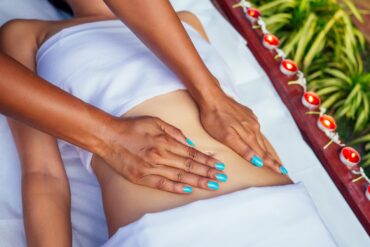Sleep deprivation isn’t just a minor annoyance.
While most of us have suffered from a night of poor sleep and brushed it off as something that will make us feel cranky for a while, there’s more to sleep deprivation than you think.
You probably already know that your mind and body rely on sleep to function properly.
When you sleep, you repair your muscles and cognitive processes, getting rid of toxins and waste that built up the day before.
If you don’t get enough sleep, then you spend the rest of the next day feeling groggy, overwhelmed, and emotional.
Sleep deprivation can come in both chronic and acute forms. The impact of acute sleep deprivation is usually relatively simple.
For instance, you might have bags under your eyes, trouble concentrating, and difficulty managing your thoughts and feelings.
Chronic sleep deprivation, on the other hand, can lead to serious long-term issues.
You’ll have an increased risk of type 2 diabetes, higher blood pressure, heart disease, obesity, stroke, and kidney disease.
Whether you’ve missed sleep for just one night, or you’re constantly fighting back against issues with insomnia, there’s a good chance you just want to know how you can start to feel like yourself again.
Here’s your guide to treatment for sleep deprivation.

Sleep deprivation treatment #1: Sleep
This might seem like the most obvious option, but it’s also the most effective. The easiest way to recover from sleep deprivation is to sleep.
Don’t spend all night glued to your television set watching the latest Netflix documentary. Avoid taking on more work than you can handle, and make sure that you stick to your regular routine.
Sleep deprivation is what happens when you don’t sleep enough. Sometimes, your sleep could suffer because you’re dealing with feelings of stress and anxiety.
Other times, you might be pushed to stay awake by pressure at work, or an impending deadline.
Whatever the reason, focus on getting yourself back on track with your sleep schedule as soon as possible.
Crucially, we’re not suggesting you should spend all day in bed after an all-nighter. This will just mess your sleeping routine up even more. Instead, try and go to bed half an hour earlier for a couple of nights to replenish your sleep.
For acute sleep deprivation treatment, one eight-hour session of uninterrupted rest could be enough to get you feeling basically back to normal.

Sleep deprivation treatment #2: Exercise
While one of the best severe sleep deprivation treatments is sleep, you can also overcome feelings of exhaustion by avoiding your bed entirely. Get up and start and getting active.
Exercise helps you sleep in a number of ways, by generating crucial hormones for your body and eliminating stress.
At the same time, the right activity can also get rid of excessive daytime sleepiness and exhaustion.
The key to successfully exercising the tiredness away is choosing a workout routine that will get your blood pumping.
While yoga and meditation can be excellent for relaxation, a run outdoors in the sunlight will help you to feel more energetic.
Any exercise that gets you outside and into natural sunlight is likely to be a good treatment for sleep deprivation. That’s because sunlight helps to reset your circadian rhythm.
If you don’t have any sunlight options available, perhaps because you live in the UK, and it’s winter, then you can try a bright light instead.
There are plenty of specially-designed lights out there that are created to overcome the effects of SAD (Seasonal Affective disorder). These are also excellent for those who want to learn how to cure sleep deprivation too.

Sleep deprivation treatment #3: Noise
Have you ever noticed how much easier it is to feel alert when you’re listening to your favourite music or radio station on full?
Turning up the volume can help you to stay alert by forcing your mind to focus and creating an environment that isn’t suitable for sleep.
When you hear something, your brain responds by making you feel more alert. This is a natural response that comes from our days of having to be aware of potential hunters and dangers around us.
At the same time, if you have a noisy sleep environment, you’re always going to struggle to snooze.
When choosing the right kind of noise to wake yourself up, remember that novelty is useful. The basic background noise that you’re used to hearing every day isn’t going to be enough, as your brain will have learned how to tune that out.
You’re going to need something new to listen to. Try some of these top British broadcasting stations.

Sleep deprivation treatment #4: Sitting up and smelling the coffee
It’s harder to fall asleep when you’re stood up. That’s a fact.
However, if you’re looking for an acute treatment for sleep deprivation, stretching out your muscles and lengthening your spine could be a great solution.
This will activate your sympathetic nervous system and encourage your body to wake up.
At the same time, when you’re stretching out, don’t be afraid to try a little bit of caffeine.
While it’s never a good idea to depend too heavily on caffeine, you may be able to chase away some of the symptoms of sleep deprivation with this naturally-occurring stimulant.
Just make sure that you separate boats of caffeine with plenty of water to keep yourself hydrated.

Sleep deprivation treatment #5: Water
Whether you’re looking for a chronic sleep deprivation treatment, or something more acute, water can be crucial to keeping you awake and active.
When you’re struggling after a bad night’s sleep, stepping into a cold shower will instantly get you feeling wide awake again.
Although this might not be the most comfortable way to start your morning, the shock of cold water will be enough to jolt you into action for a short period.
Since you probably can’t expose yourself to a cold shower every couple of hours — particularly when you’re at work, you’ll need another option for how to cure sleep deprivation consistently.
An alternative is to try drinking as much water as possible.
Sleep deprivation is as bad for your brain as being drunk. When you’re intoxicated, you struggle to focus because your brain is dehydrated. That’s why you often start to feel better after you’ve had plenty of water.
Similarly, when you’re sleep-deprived, water will help to get your brain working properly again so that you can focus.

Sleep deprivation treatment #6: The right diet
When you’re struggling with insomnia, there are a lot of different things you can do to improve your chances of having a good night’s sleep. That includes eating the right foods.
Similarly, when you’re looking into how sleep deprivation is treated, you’ll notice that many experts recommend eating energy-boosting foods to help you get through the day better.
For instance, bananas are one of the best foods out there for energy.
These unique fruits are an excellent source of vitamin B6, potassium, and carbohydrates. All of these substances boost your energy levels without giving you a sudden sugar dip.
Other options include:
- Fatty fish: Omega-3 acids reduce inflammation in the body and therefore limit fatigue.
- Sweet potatoes: These are packed full of complex carbs which give your body energy for longer.
- Eggs: Eggs are brimming with leucine, which is known to stimulate rapid energy production.
- Apples: Apples contain a rich amount of natural sugars and fibres for sustained energy release.
- Yerba mate tea: Made from dried leaves from a plant native to South America, this drink is packed full of antioxidants and caffeine for energy.

Sleep deprivation treatment #7: Prevention
Often, when you ask doctors and sleep experts, “Is there a treatment for sleep deprivation?” they’ll tell you “no.” The only true option if you want to know how to cure sleep deprivation is to get more sleep.
Because of this, the best way to overcome sleep issues is to prevent them from being a problem in the first place.
Of course, if you’re one of the countless people who have suffered from sleep deprivation and insomnia in the past, then you’ll probably know how difficult this can be.
The first step in figuring out how to avoid sleep deprivation is learning about good sleep hygiene.
For instance:
Create and stick to a consistent sleep schedule
Make sure that you pick a strict time to go to bed, and a specific time to wake up each day, so you can develop a routine.
Avoid caffeine and alcohol when close to bedtime
Both of these things will disrupt your sleeping habits and make it harder to feel rested when you wake up.
Follow a bedtime routine
As well as going to bed at the same time each night, make sure that you follow the same routine too. Wash your face, brush your teeth, and make sure your body knows that it’s time for sleep.
Avoid electronic appliances
Devices like smartphones, computers, and tablets emit lights that disrupt the biological clock in your brain.
Try meditation and relaxation methods
If you’re having a hard time falling asleep because of stress and anxiety, then you could try meditation or deep breathing. Anything that will help you to feel calmer before bed is useful.
Curing the causes of sleep deprivation
Just because finding an effective sleep deprivation treatment isn’t easy, doesn’t mean that you can’t reduce your chances of falling victim to sleep disorders.
If you know the reason why you’re not sleeping as well as you should be, you can seek help from your doctor.
For instance, if you have sleep deprivation problems regularly because you’re always tossing and turning in your sleep, or you’re plagued with anxiety, your doctor can run tests to see if any underlying conditions are contributing to your concerns.
If you have diabetes, then that’s a strong indicator that you’re going to suffer from insomnia too.
Additionally, people with depression and other mental health conditions tend to struggle with sleep deprivation also.
If you have an overactive thyroid, then you might experience a problem with regular nighttime sweating that wakes you from your sleep.
Having thyroid tests will help your doctor to determine whether you need special treatment for this condition.
Alternatively, your doctor may decide to give you a medication to help you sleep more soundly each night. Sometimes, your treatment options will start with more harmless substances like melatonin.
Your doctor may also suggest taking allergy or cold medication that helps you to feel drowsy at night.
Prescription sleeping pills can include Zaleplon, Eszopiclone, and Zolpidem.
Psychological treatment for sleep deprivation
If you’re having regular issues with sleep loss, to the point where you ask your doctor how to cure sleep deprivation, they might suggest seeing a specialist.
Psychologists, therapists, and other sleep experts can help you to find strategies of improving your sleep experience through things like guided relaxation and meditation, or cognitive behavioural therapy.
Cognitive behavioural therapy is a common treatment for sleep deprivation and many other sleep disorders.
This strategy often helps people struggling with their sleep to identify unhealthy patterns in their behaviour that could be causing them to stay awake.
Of course, CBT won’t help you to feel better straight after you’ve been sleep deprived. However, it could ensure that you’re less likely to face sleep issues in the future.
Is there a treatment for sleep deprivation?
Ultimately, if you want to know how to cure sleep deprivation, the best thing you can do is learn how to improve your sleep hygiene.
If you can reduce your chances of being sleep deprived in the first place, by creating a reliable sleep schedule, or adjusting your sleep environment, then you’ll be more likely to get the rest that you need.
After you’ve already had a bad night without sleep, make sure that you expose yourself to plenty of natural light, drink lots of water, and use the tips we’ve offered above to get yourself feeling back to normal as quickly as possible.
You can find additional advice here at Siestio.com to guide you in our other articles and resources.
Remember, if you’re ever worried about your sleep issues, you should always seek professional help from a doctor or specialist.
Siestio. Sleep Matters.
Medical disclaimer
You must not rely on the information provided on our website as an alternative to medical advice from your doctor or other healthcare professionals. For more information read our full disclaimer here.





